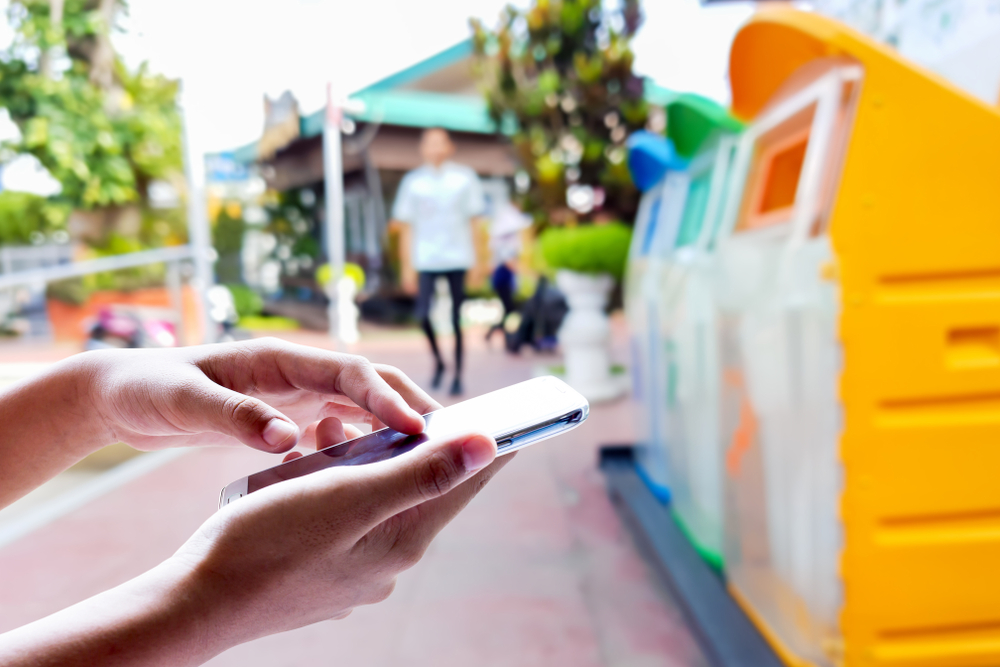
SMART Bin Technology for Recycling Process Improvement for Business Sustainability.
The Higher Colleges of Technology is the largest institution of higher education in the United Arab Emirates distinguished by applied education and the first higher education institution in the country to be accredited as a creative economic free zone to enable it to graduate companies and entrepreneurs in accordance with the directives of the wise leadership of the state.
The Higher Colleges of Technology was established in the year (1988) and has 16 branches across the different emirates of the country. In granting more than 85,000 scientific qualifications, through male and female graduates, whose performance and development in their workplaces reflected the nature of the distinguished education they received in colleges.
Today, the colleges have more than 23,000 male and female students, of whom female students represent 63% of the total number of enrollments, which reflects the role of colleges in preparing Emirati girls to contribute to career development and serve their country.
Project Overview
Our aim is to develop SMART bin technology that will contribute to recycling process improvement by allowing effective communication with users (including students) to dispose waste in a segregated way and by allowing a better management of information internally and with the recycling facilities. The SMART Bins will raise public awareness of good recycling practices and build a generation of Abu Dhabi citizens with a culture of sustainability and recycling. The project addresses the lack of waste management practices in the Abu Dhabi community, especially in education institutions. Our assumptions were that few people are aware of the effects that waste (e.g paper, single use plastics and Cans) has on the environment. We also assumed that not many people are segregating waste properly due to lack of interest, laziness or motivation. Our assumptions were confirmed by a survey we administered. Smart bins will help people to be more mindful and care more about the environment because the Smart Bin is voice automated and prompts users to place waste in the correct bin. Moreover, waste volume and other useful measures will be communicated to stakeholders for a better recycling process.
Method
- Discussions between students and supervisors.
- Experiments with the different components of the Bin and IoT system.
- Survey to identify level of awareness on sustainability
- Instagram to check the amount of responses and views of the post on sustainability.
- Delphi method (opinion of experts).
Key Outcomes and Learnings
We worked with students to develop a SMART Bin prototype where the machine communicates with students for awareness purposes. In addition, the technology captures waste management statistics and facilitates the transfer of information internally to campus facilities and externally to our recycling company. We learned the importance of using technology for sustainability and for reduction of waste.
The initial phase of our project revolved around the student developed prototype and outlining a new recycling process for our college. We worked closely with our industry sponsor, Al Dhafra Manufacturing, to achieve these aims. We are currently in the process of developing the commercial SMART Bin prototype for use on campus and with our industry sponsor – Borouge. We learned that collaborations between university and industry are important for innovation.
To better understand our stakeholders interests, we administered a survey to investigate their attitudes, practices, and knowledge. The results gave us a clearer picture of how to spread awareness within our college community. We used this information to execute several campus sustainability events that involved internal and external partners such as WWF, EA, AD ports, Al Dhafra Paper manufacturing Company, Borouge and Zayed University. Furthermore, we developed an Instagram campaign where students posted pictures and a video about camels, which was our chosen story to share with viewers. The story is about the endangered lives of camels in the deserts because of waste pollution. Instagram allowed us to connect with people across many regions. It helped in spreading our story and creating awareness.
The outcomes of this project are achieved by working in a multidisciplinary group comprised by Business, Applied Media and Computer Information Systems academic disciplines. Business is responsible for contracts, coordination and management of the project. Media oversees design elements and supports content for media including our Instagram account, and CIS leads the development of the SMART Bin prototype. We learned that working together in a multidisciplinary team is crucial for leveraging knowledge and creating better outcomes.
For this project, we have tried to address recycling and good waste management with our target audience. We communicated with our audience through multiple campus awareness events and shared our story (Save the Camels) via Instagram. We learned from this project that recycling and proper waste management is an essential concept, and many in our community still need to be educated about the importance of managing and segregating waste. We believe that SMART Bin technology is one way to encourage proper waste recycling and management practices. Collaboration with internal departments and external agencies is also vital for improved sustainability and performance
